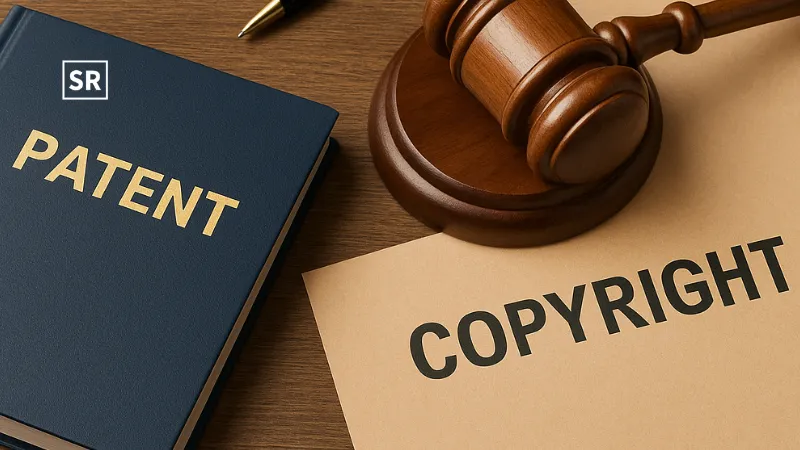
Intellectual property (IP) is critical in today’s knowledge-based economy. It refers to creations of the mind — inventions, artistic works, brand names, designs, and other intangible assets — that are legally protected from unauthorized use. In the UK, individuals and businesses can assert ownership over their intellectual efforts through automatic rights and formal registration.
Understanding how IP works is essential for anyone developing original content, branding, or innovation. Many people seek guidance from intellectual property lawyers to ensure their rights are properly secured and enforced. The UK has a well-developed legal framework to protect IP and resolve related disputes efficiently.
Types of intellectual property in the UK
Under UK law, several categories of intellectual property exist, each offering different forms of protection depending on the creation’s nature.
Copyright
Copyright protects original works of authorship, such as books, films, music, software code, architectural drawings, photographs, and websites. It arises automatically when the work is created and fixed in a tangible form. There is no need to register copyright in the UK. The creator generally owns the copyright unless the work is made during employment, in which case the employer may hold the rights.
For creators concerned about their rights being infringed or unclear ownership terms, it is often advisable to consult with copyright solicitors to manage usage and licensing correctly.
Trademarks
Trademarks protect brand identifiers such as logos, names, slogans, or sounds. Registered trademarks give the owner exclusive rights to use the mark with specified goods or services. This protection lasts ten years and can be renewed indefinitely.
Patents
A patent protects new inventions that are innovative, useful, and capable of industrial application. Patents must be registered with the UK Intellectual Property Office (UKIPO) and usually last up to 20 years. The process is rigorous, requiring a detailed application and technical specifications.
Design rights
Design rights protect the visual appearance of products, including shape, configuration, and decoration. In the UK, there are both registered and unregistered design rights. Registered protection can last up to 25 years and provides stronger legal remedies in case of infringement.
Trade secrets
While not registered like other forms of IP, confidential business information such as formulas, processes, or strategies can be protected under common law as trade secrets, provided reasonable steps have been taken to keep them secret.
How is intellectual property protected?
In the UK, protection depends on the type of IP involved.
- Automatic protection: Copyright and unregistered design rights arise automatically upon creation. The creator does not need to apply for these rights, although maintaining clear records and evidence of authorship is advisable.
- Registration: Trademarks, patents, and registered design rights require a formal application to the UKIPO. The application process involves checks for novelty, distinctiveness, and potential conflicts with existing rights.
- International protection: UK rights can be extended internationally through the Madrid Protocol (for trademarks) and the Patent Cooperation Treaty. Businesses operating globally often register their IP in multiple jurisdictions to prevent misuse abroad.
Protecting your IP proactively by registering it when possible and enforcing it when needed is a key part of managing your creative or commercial assets.
Enforcement of IP rights in the UK
If someone infringes on your IP, UK law offers several legal remedies. These include:
- Cease and desist letters: A formal demand to stop infringing activity, often the first step.
- Injunctions: Court orders preventing the continued use or distribution of infringing content.
- Damages or account of profits: Financial compensation for losses or unjust enrichment.
- Destruction or delivery up: Orders requiring the infringing materials to be handed over or destroyed.
Depending on the complexity and value of the case, disputes may be brought before the Intellectual Property Enterprise Court (IPEC) or the High Court. The IPEC offers a cost-effective and streamlined alternative for lower-value or simpler claims.
IP for businesses and creators
Intellectual property can be a core asset that drives value, competitive advantage, and growth for businesses and individuals. Startups may seek investment based on patent portfolios or unique branding, while artists and designers rely on copyright for income through licensing and royalties.
Properly managing IP includes:
- Registering applicable rights early.
- Using NDAs and contracts to secure ownership and confidentiality.
- Including IP clauses in employment agreements and contracts with freelancers.
- Licensing IP strategically to generate revenue while retaining control.
Many businesses partner with lawyers to develop long-term IP strategies that align with their commercial goals.
Common mistakes and how to avoid them
Even with good intentions, many individuals and businesses make avoidable errors when handling intellectual property:
- Failing to register trademarks or designs leaves brands vulnerable to imitation.
- Assuming automatic copyright guarantees complete protection, without understanding the limitations.
- Using third-party content without checking for permissions exposes them to infringement claims.
- Overlooking IP clauses in contracts can result in losing control over valuable assets.
- Not protecting trade secrets with sufficient confidentiality measures.
Avoiding these pitfalls requires awareness, planning, and — where appropriate — expert legal support.
Conclusion
Intellectual property is vital to the UK’s legal and economic framework, empowering individuals and businesses to protect, commercialise, and enforce their creative and technical efforts. Understanding how these protections work, from copyrights and trademarks to patents and design rights, is essential for long-term success.
Whether you're an entrepreneur building a brand, a software developer writing code, or a designer creating original products, your work deserves protection.


 Follow us
Follow us Follow us
Follow us















